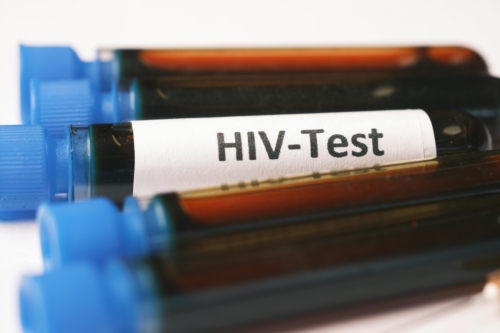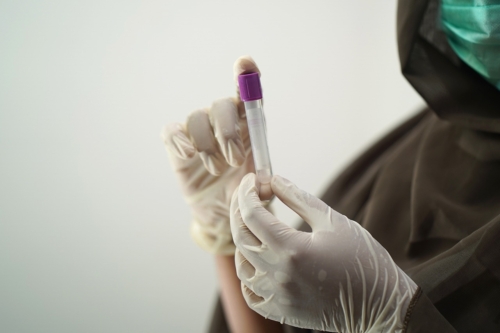Former stripper with AIDS wins appeal
By shaving a mere day off her two-year jail sentence for infecting her husband with HIV, the Ontario Court of Appeal has given former stripper Suwalee Iamkhong a chance to fight Ottawa’s attempt to send her back to Thailand.
“She’s very happy,” Elizabeth Long, Iamkhong’s lawyer, said after a three-judge panel released its decision yesterday.
Man sues Canadian government over lack of pre-2001 mandatory HIV testing
A Toronto man is suing the Canadian government for CAD$33 million (£18.5m) because it did not bring in mandatory HIV testing of immigrants until 2001.
Percy Whiteman is the former husband of Thai migrant, Suwalee Iamkhong, who was found guilty of transmitting the virus two years ago and is now fighting a deportation order.
Ms Iamkhong is appealing her conviction and sentence.
Headed by Justice Stephen Goudge, the panel signalled yesterday that her conviction appeal hinges in large part on whether Iamkhong could be believed when she claimed a blood test she underwent after arriving in Canada in 1995 led her to conclude she was HIV negative.
Iamkhong testified two years ago that when her former manager told her the test showed her to be “in the clear,” she thought it meant an earlier test she underwent in Hong Kong, indicating she was HIV positive, was wrong. In fact, the Canadian blood test did not look for HIV.
Now fighting to remain in Canada, she is asking for her two year sentence to reduced by one day.
Sentences of two years or more deprive offenders such as Iamkhong, a landed immigrant, of the right to appeal a deportation order on humanitarian grounds.
The court has not yet decided Ms Iamkhong’s fate. One wonders how far her ex-husband will get in suing the Canadian government.
HIV: Wife gets two years, he's got a life sentence
Often, it is men who end up behind bars for intentionally infecting women with HIV. This week, that balance shifted.
Early Thursday morning, an anxious and sleep-deprived Percy Whiteman, 32, gathered with friends outside of the Ontario Superior Court of Justice on University Avenue to conclude a three-year battle to see justice served to his estranged wife, Suwalee Iamkhong, 37, who in January was found guilty of intentionally infecting him with HIV.
With Mr. Whiteman’s and Ms. Iamkhong’s supporters in attendance, Mr. Justice Todd Ducharme of the Ontario Superior Court sentenced Ms. Iamkhong, now convicted of aggravated assault and criminal negligence causing bodily harm, to two years in a federal penitentiary for her lack of remorse, the eight years she failed to tell Mr. Whiteman she was HIV-positive, and the lasting effect on his life.
For Mr. Whiteman, the time she will serve will never equal what he considers his “life sentence”: living with HIV.
It’s relatively uncommon for heterosexual men to get HIV/AIDS, a fact Mr. Whiteman continually highlights when discussing the plans for his non-profit group, Positive Survivors Living With HIV/AIDS, which will support heterosexual sufferers. Last year, according to Toronto Public Health, only a handful of the 652 new cases of HIV were among men infected by women. A mere 25 reported only having sex with women; six had partners they knew had the disease.
The couple’s tumultuous times began in 1996. The Thai immigrant had arrived at the Zanzibar strip club on Yonge Street, where she went by the stage name “Ricki.” Friends brought them together; in 1997, they married.
This was not a first marriage for Ms. Iamkhong. After leaving the rice fields of her village, she landed in Bangkok, where at 15, she found herself pregnant and then deserted by her common-law husband. There was also another marriage during the subsequent 10 years, although details are fuzzy. She left her son behind, moving to Hong Kong in 1996 to work as a go-go dancer and, briefly, a prostitute.
The Canadian union had its ups and downs, said Mr. Whiteman, like any other relationship. They argued about whether she could quit her job. Throughout their seven-year marriage, she would sometimes move in with her sister, who also worked at the Zanzibar. (There was a time when he had sexual relations with another woman, a fact Judge Ducharme highlighted.) In early 2004 things began to change. Mr. Whiteman says he was working three jobs, ranging from club bouncer to security guard, and was rarely home. When Ms. Iamkhong began to get ill in January with unexplained headaches and body pains, he was unable to take time off to care for her. She went to live with her sister again, until one winter day Mr. Whiteman got a call to say she was in the hospital. “Every day I’d go and check up on her … one day I received a call from her and she was crying and saying, ‘I’m sorry.’ I said, ‘Why, what’s going on?’ and that’s when she told me about the HIV,” he said.
Ms. Iamkhong had had a previous HIV test in Hong Kong, which showed her to be positive. After she arrived in Canada, she took a second test, which she told the courts she believed was negative. Judge Ducharme did not believe that the evidence of her ignorance was strong enough, a key argument in finding her guilty of criminal intent. Ms. Iamkhong also repeatedly told Mr. Whiteman that she was disease-free when he asked, leading him to decide it was safe not to use condoms.
Because Ms. Iamkhong had no basis for not telling Mr. Whiteman of her condition, Judge Ducharme said her actions “could only be classified as self-centred, callous and reprehensible.”
Following his wife’s revelation, Mr. Whiteman says, his life spun out of control. There were arguments in the hospital, an AIDS test that showed he was positive, and a separation from Ms. Iamkhong (whom he has not yet divorced). He turned to the bottle, drinking himself to sleep throughout March of 2004. By May, Mr. Whiteman, with the support of friends, was able to bring himself to have his wife charged for her actions.
“One night I broke down and I said to myself, ‘She cannot win. What she’s done is wrong and she has to be brought forward,’ ” he said.
But it wasn’t easy. He had thoughts of suicide, he said, and anger that she asked for a publication ban on her name, even though he felt, as the victim, that he should have the right to expose her. He had to deal with pressures from Immigration Canada (he is her sponsor). He didn’t understand the legal system and said that, without the support of Toronto police, he never would have figured out what was going on in the trial. Looking back, Mr. Whiteman says it’s no wonder more people aren’t going public.
“Victims don’t want to step forward because they think, ‘I’ve already been through all of this, so why do I want to be dragged through the whole court system?’ ” he says.
With few such cases passing through, courts take a long time to make decisions on sentencing, says one Toronto lawyer. “Criminalization of HIV/AIDS transmission has really only been taking place for the last 15 years and there’s not a specific offence for it,” explains York University law professor Alan Young.
And the difficulty of figuring out who may have been infected, and when, makes it all the more difficult. “It’s a crime that goes unnoticed for many years … and if you’re in the universe of multiple sexual partners, it becomes a bit of a logistical nightmare,” he adds.
Mr. Whiteman’s main goal during the case was to have the publication ban on their names lifted. He hoped making the case public would alert others who may have had sexual relations with Ms. Iamkhong. “When we were split a few times, God knows if she spread this to other people. What if there was a guy having a fling behind his wife or girlfriend’s back?” he said.
There is only one other public case in which an HIV-positive woman was charged with infecting a man. In 2005, Jennifer Murphy was sentenced to one year of house arrest for having sex with men at CFB Borden without disclosing her status.
With worries over what he feels is a “time bomb” ticking away in his bloodstream, Mr. Whiteman said he’s going to focus his attention on the non-profit group he started with his friend Jameela Parris.
“Heterosexual people aren’t taking the time to understand HIV,” says Ms. Parris. “There’s a lot of ignorance. It’s ridiculous.”
Mr. Whiteman said he counts his blessings his HIV hasn’t turned into full-blown AIDS. But it doesn’t make up for irreparable damage.
“I can’t have a family the way every family should be made,” he said sadly. “My question will always be, ‘Why?’ ”
*****
Reaching out
Out of adversity comes strength. For Percy Whiteman, his ordeal turned into a desire to help others.
In late 2006, he and his friend Jameela Parris founded Positive Survivors Living With HIV/AIDS. The non-profit group is working on a website but, for now, can be found on Facebook. Currently 100 members strong, its mandate is to help all heterosexuals living with the disease, regardless of race, age or gender.
Mr. Whiteman and Ms. Parris both say that, when it comes to the disease, heterosexual males are the last group anyone thinks about.
Since heterosexuals are often the least educated about how it’s transmitted, the goal is to expand nationally and eventually globally, said Ms. Parris, as an educational resource.



